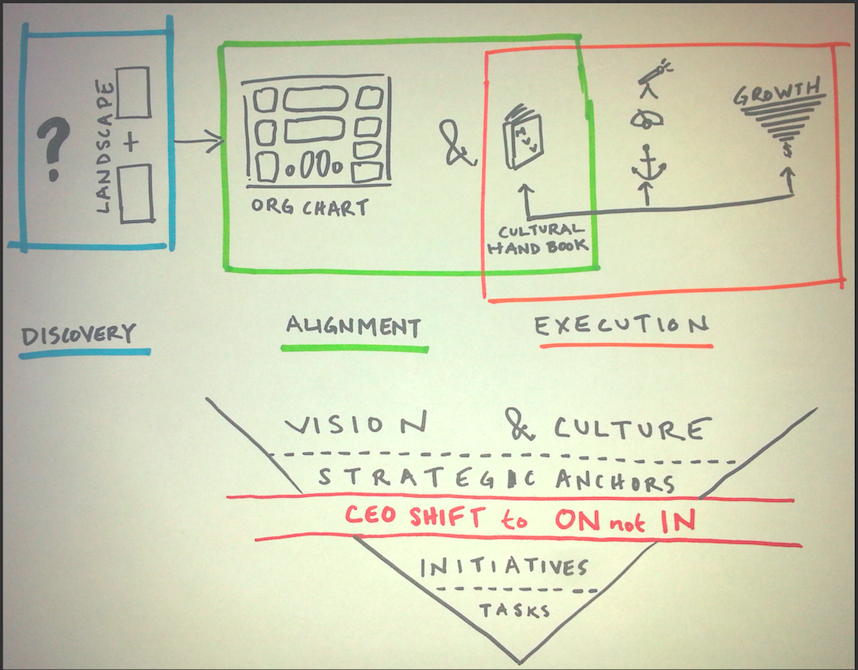Alan Hirsch argues that the church is in need to return back to the state of a permanent revolution. Christianity has become a civil religion that has lost it’s vibrancy (p 26) and moved from the apostolic people-movement Jesus created. We are entering into a season where increasingly there is organizational doubt about how we organize. See image:

As Hirsch states, “We very much believe our message but we can’t seem to deliver it as effectively as we used to, and we feel bad about it.” Unless we address these doubts, Hirsch argues that the church will continue to move to increasing doubt beyond operations to the very message itself. The issue is one of needing new wine skins. Most churches will be unable to see this need because they are within the system and suffer from “paradigm blindness”. Yet, if we don’t change we will move into deeper organizational complacency (p 36) and settle into a civil religion. The argument presented is we need to rethink two major functions, first seeing the church as an apostolic movement and secondly, seeing the need for apostolic leadership to create missional movements, that is churches that express themselves in a local context, in a city, in a region and in the World.
Have we moved into a period of operational doubt? The ‘modern’ church has been under increasing attack of late. This is the church that has flourished in a time where programs, systems and attractional woo brought many into it’s doors, even baptizing them. The question may not be the right way to approach this. One of the things that we decided at Kaleo was, “What is the best way to see the gospel flourish in our community?” It was at this time we moved from a Sunday as the primary gathering mentality to seeing Missional Communities as the organizing principle within our church. Now, we made a lot of mistakes in leading our people through this process, which I can share plenty about. This need reminded me of a session I did at the GCA Church Planting Conference in 2007 on Communication in Our Post-Christian World, where I discussed three trends that increasingly will impact the church:
1. The Cultural Shift we are Experiencing will Change Paradigms. Gen X is over 40 years old now and in positions of power and change. The postmodern view is becoming more dominant and central as the generational shift occurs. Or one of my favorite quotes from Peter Drucker in The Post Capitalist Society, [1993; page 1] says: “Every few hundred years in Western history there occurs a sharp transformation …. within a few short decades, society rearranges itself – its worldview, its basic values, its social and political structure, its arts, its key institutions. Fifty years later, there is a new world. And the people born then cannot even imagine the world in which their grandparents lived, and into which their own parents were born. We are currently living through just such a transformation.”
2. Christendom is increasingly moving to the Fringes. Hirsch and the above quotes discuss this further.
3. More People in our Communities will have a Gospel Inoculation. People have heard enough about Jesus to think, I don’t know what God if any I believe in but I don’t believe in that god. Sadly, these people typically haven’t seen what it means to be a Christian.
Are you feeling these changes? How is your church addressing the shift?
RELATED POSTS


